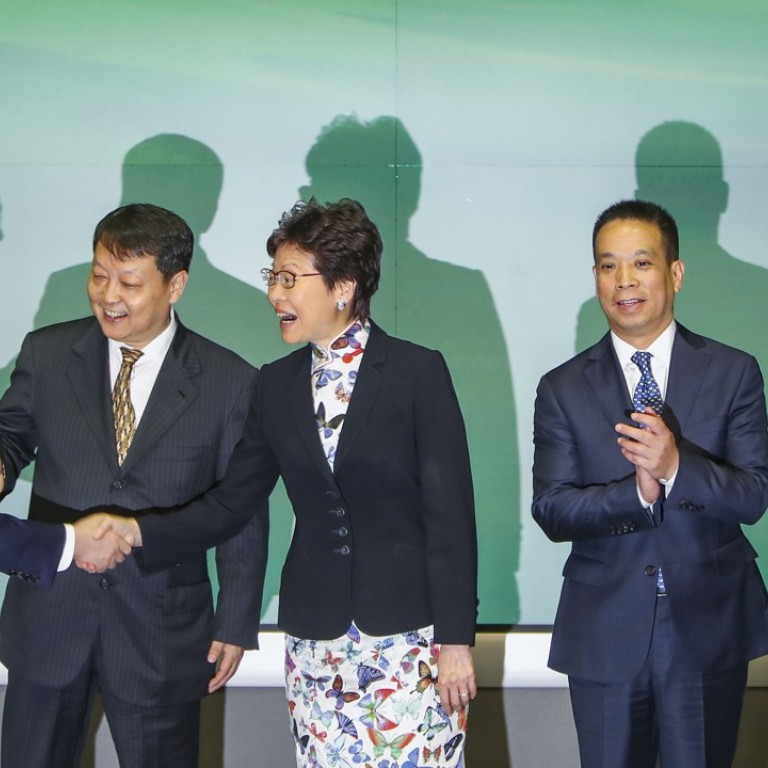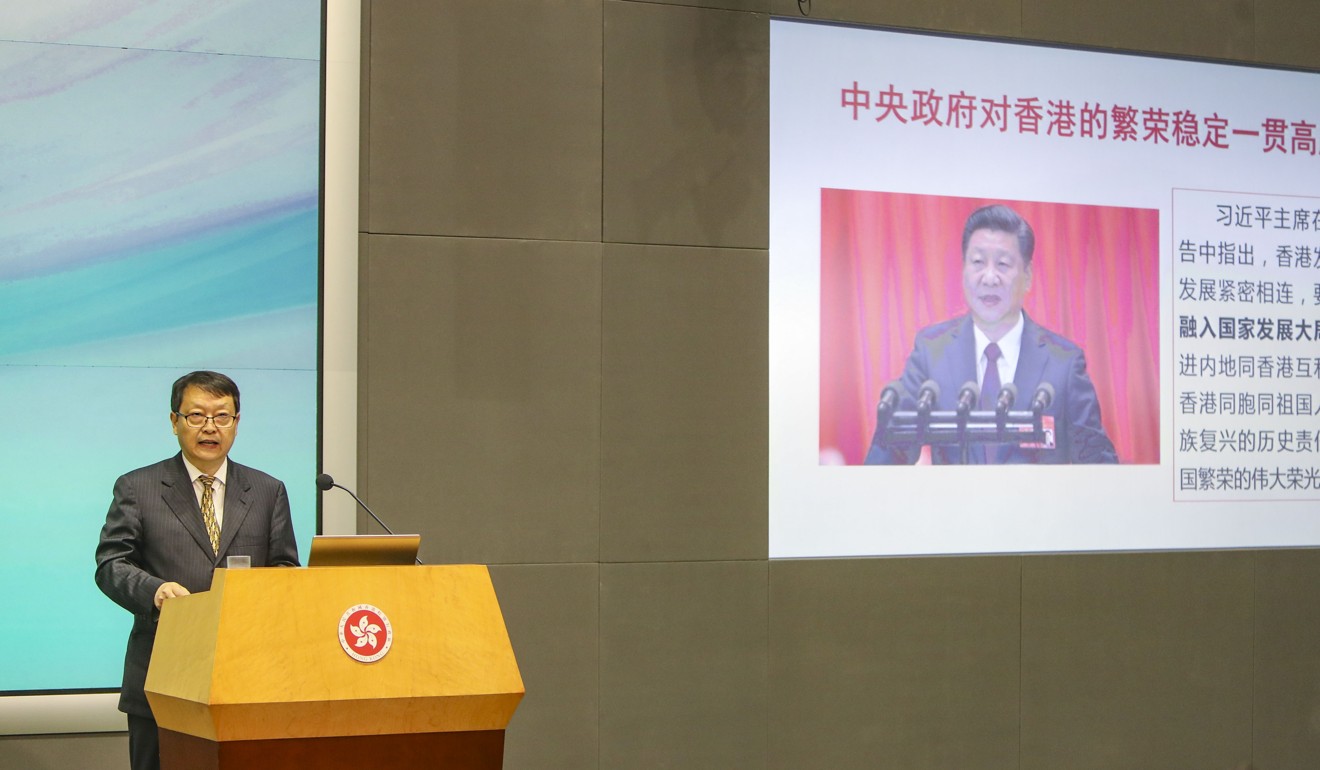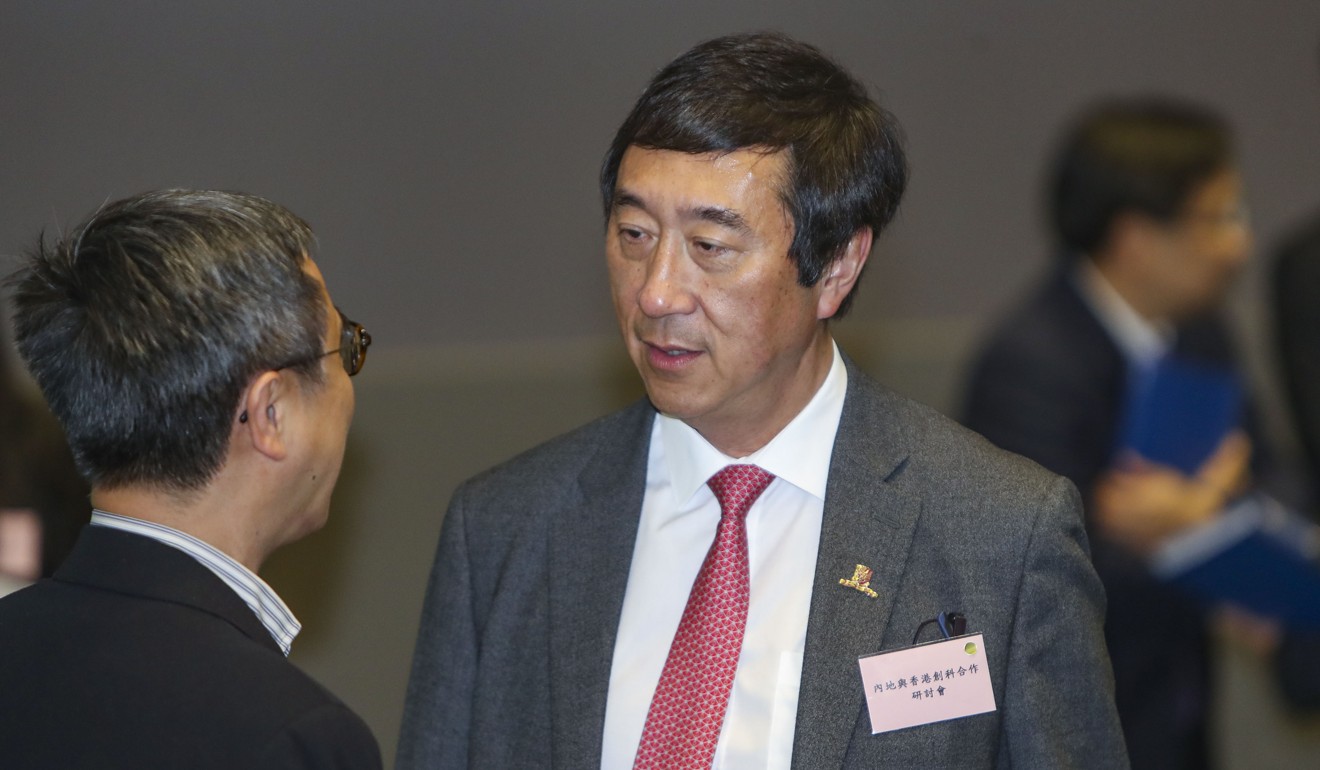
National funding ‘crosses the bridge’ to Hong Kong scientists and research hubs as part of innovation drive
Representatives from country’s top research institutes attended a forum on cross-border cooperation in innovation in Hong Kong on Tuesday
More than 20 Hong Kong laboratories and research centres have already received national-level funding as part of President Xi Jinping’s pledge to support the city’s ambition to become a global innovation hub.
Officials on Tuesday encouraged local scientists to play an active role in key national projects and policymaking as about 160 members of the city’s top science and technology research institutes attended a forum on cross-border cooperation in the innovation field.
Discussing new opportunities presented by the funding boost, China’s vice-minister for science and technology, Huang Wei, described Xi’s commitment as “a bridge built over the river”, for allowing the flow of funds into Hong Kong that could previously be accessed on the mainland only.

“Our money has crossed the bridge and entered the account of Hong Kong scientists,” he said, revealing that as of last month, all 16 state key laboratories, as well as six branches of the Chinese National Engineering Research Centres in Hong Kong had received money from Beijing.
“[We will] take in more scientists from Hong Kong and Macau to participate in national science and tech planning ... so that they can play a role in national policymaking,” he told the forum held at government headquarters.
Huang Liuquan, deputy chief of the State Council’s Hong Kong and Macau Affairs Office, urged the city’s government and tech sector to take advantage of the full slate of policy changes.
Our money has crossed the bridge and entered the account of Hong Kong scientists
Besides greater access to state funding, Hong Kong-based scientists can now capitalise on tariff waivers and other incentives when moving equipment across the border or importing machinery for scientific research.
The new measures were highlighted on Monday by state news agency Xinhua as Xi’s response to an appeal last June by 24 of Hong Kong’s leading scientists who wrote to the president asking to be allowed “to make a contribution to the motherland”. Commentators noted the timing as China’s quest to dominate hi-tech industries faces suspicion and resistance from governments around the world.
Chief Executive Carrie Lam Cheng Yuet-ngor, along with former and current heads of universities and research institutions, as well as legislators, welcomed the policy move on Tuesday.
The city’s leader hailed it as a “breakthrough” that underscored Xi’s support for local talent.
She also defended the wording used in the directives issued by the president that said Beijing would only support scientists who “love the country and Hong Kong”. Lam dismissed fears over academic freedom, insisting that such stipulations were “nothing unusual”.
Lack of innovation and incentives holding back Hong Kong from becoming a smart city
Since Hong Kong returned from British to Chinese rule in 1997, some of the city’s universities have set up branches on the mainland. But local scientists have complained of being denied Beijing’s generous grants even when they were collaborating with their mainland counterparts, and of being hit by high costs when moving machines and equipment across the border.
Communist Party mouthpiece People’s Daily published quotes on Tuesday from Hong Kong scientists praising the policy changes.
Former Chinese University chief Joseph Sung Jao-yiu, one of 24 signatories to the letter to Xi, was cited as saying it would work well with the Greater Bay Area project, Beijing’s plan to turn Hong Kong, Macau and nine Guangdong cities into an economic powerhouse rivalling Silicon Valley.
There were many universities and businesses in the 11 cities, which are also well-connected by transport networks, Sung said.

Another signatory to the appeal, Hong Kong University of Science and Technology vice-president Nancy Ip Yuk-yu, said each of the 22 Hong Kong labs or centres who accessed the new funding had received 1 million yuan each.
Academy of Sciences of Hong Kong president Tsui Lap-chee, who also signed the letter, said Xi’s directive was an important boost for technological cooperation between the mainland and Hong Kong.
“We know that a lot of research results of Hong Kong scholars were not converted to the downstream industries in the past. We must change this unhealthy ecology,” said Tsui, former head of the University of Hong Kong.
But Huang Liuquan cautioned scientists at the forum not to be complacent now that they could tap into larger endowments.
“The Hong Kong government and the tech sector should think and make plans about the nation’s tech strategies, take the initiative to understand and learn about national policies, so that they can accurately position Hong Kong’s direction in innovation and technology, find the connection between what the country needs and what Hong Kong is good at, and firmly take hold of development opportunities,” he said.

